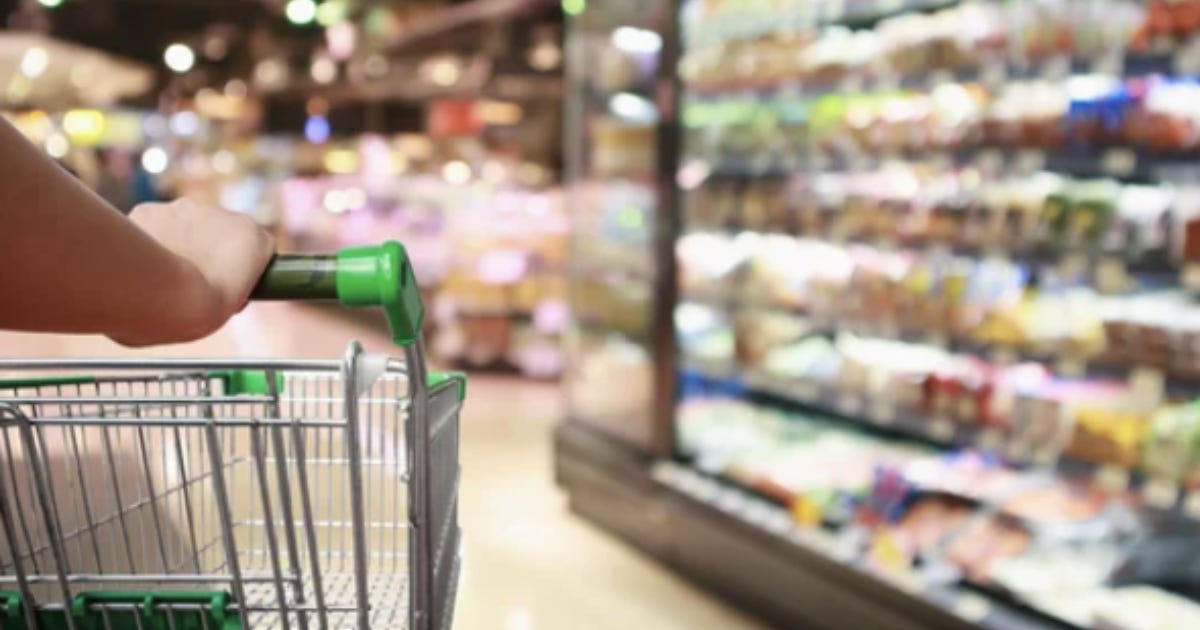Conservatives call for tax-free groceries amid food crisis
The Conservatives are urging the Carney government to eliminate various taxes on everyday essentials, arguing that Canadians deserve to shop for food without “stress and anxiety.”
The Conservatives are urging the Carney government to eliminate various taxes on everyday essentials, arguing that Canadians deserve to shop for food without “stress and anxiety.”
This comes as many Canadians report struggling with the rising cost of groceries and a growing number of people accessing food banks.
Conservative Leader Pierre Poilievre presented an opposition day motion Thursday to mitigate food costs, calling on the Liberals to remove the industrial carbon tax on fertilizer and farm equipment.
He also called for the elimination of “food packaging taxes,” referring to the plastic ban and other packaging requirements.
Many Canadians are struggling to afford food. Data published earlier this month revealed that one in four households now struggle with food insecurity, which includes going entire days without food or worrying about running out of supplies at home.
According to a report from Food Banks Canada, there has been a 40 per cent increase in poverty over the last two years. The charity released its 2025 Poverty Report Card last week and gave Canada an overall failing grade of “D.”
The grade reflects the federal government’s poverty reduction efforts.
“A clear picture that emerges from the data is the nationwide inadequacy of government support, which has worsened severely across the country,” reads the report.
In a statement released on Thursday, the Conservatives said they, “believe that everyone – our families, our seniors, our workers – deserve nutritious, delicious, affordable food on their tables. Meat and potatoes night after night, not as a once-in-a-while treat.”
However, the cost of beef is up 33 per cent, while potatoes are up 16 per cent.
Prime Minister Mark Carney said in May that Canadians could hold him to account by their experience at the grocery store but a recent report from Agri-Food Analytics Lab “forecasts that overall food prices will increase by 3 per cent to 5 per cent.”
“The average family of four is expected to spend $16,833.67 on food in 2025, an increase of up to $801.56 from last year,” it said.
Canned soup prices have risen 26 per cent, grapes 24 per cent, and roasted and ground coffee 22 per cent.
Conservatives argued that if the “average dairy cow can produce four times as much milk as 50 years ago, and the average acre can produce four times as much corn,” then “the cost of government, which again, is the biggest cost contributor,” must be to blame for rising food prices.
“Every dollar this Liberal Prime Minister spends comes out of the pockets of Canadians in direct taxes or inflation taxes. We know that inflation is very good for Brookfield because the CEO of that company said so. He said that his company profits from inflation, so the Prime Minister will get richer as he makes Canadians poorer and hungrier through his inflation tax,” the statement continued.
“Today, we call on the government to stop taxing food. Allow Canadians to have nutritious, delicious food. Make this a country where anyone who’s worked hard can enjoy meat and potatoes on their table.”



My first thought was that food isn't taxed at the grocery store, but then as I read further I realized that food is taxed, not at the grocery store, but at the input and production stages. We need to eliminate the taxes that drive up the price of food before it gets to the shelves, like gasoline taxes, input taxes, and as mentioned, packaging taxes and farm inputs. Food is taxed at every step of the way except for at the checkout and so we don't see it as easily. Kudos to the conservatives and Juno news for calling out the government and telling them this is definitely their fault.
Coffee prices are up due to crop failures in Brazil. One has to be careful regarding why prices are up or down. Generalizations do not work.